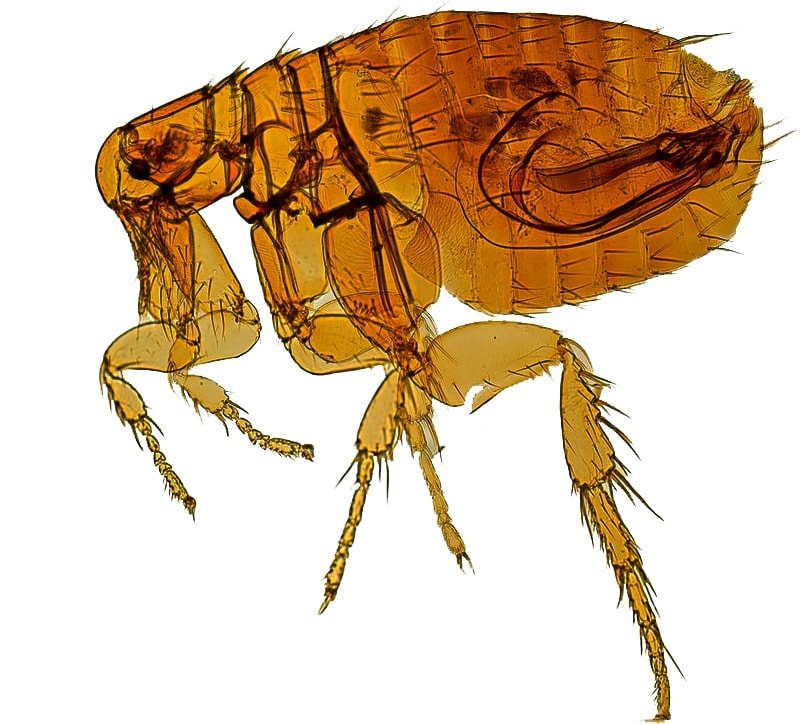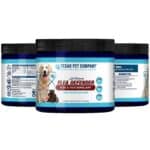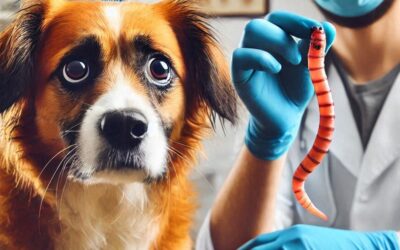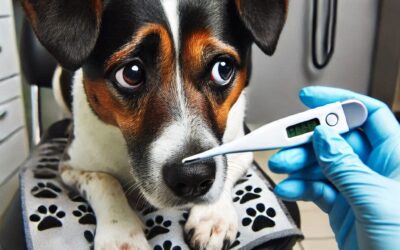Fleas are pesky annoyances for our furry friends. These tiny, wingless parasites want blood. A single flea can quickly multiply into an infestation. They can lay up to 50 eggs a day. So how long does it take for flea treatment to work on dogs? As a dog owner, you should have information about this.
As a dog owner, your pup scratching is a sign. It’s essential to recognize the importance of timely treatment. As they can cause flea infestations, they can cause intense itching and skin infections. Stay ahead of fleas is crucial for your dog’s health and comfort.
Table of Contents
So What are Fleas?
Fleas belong to the order Siphonaptera. They are parasitic insects that feed on the blood of mammals. The most common species affecting dogs are the cat flea (Ctenocephalides felis) and the dog flea (Ctenocephalides canis).

Fleas have a fascinating life cycle. It includes four stages: egg, larva, pupa, and adult.
An adult flea can live for several weeks to months on a host. Plus they can lay their eggs on the host. With a good environment, they can survive much longer. This means it’s essential to address both your pet and its surroundings.
How Long Does It Take for Flea Treatment to Work on Dogs?
Topical treatments typically begin killing fleas within 4 to 12 hours. In contrast, oral medications like Capstar can start killing fleas in as little as 30 minutes. Full effects are usually seen within 4 hours.
Eradicating a flea infestation can take 2 to 6 weeks. It depends on the severity of the infestation and the consistency of follow-up treatments. For optimal results, it’s essential to combine different treatment methods. Maintain a regular application schedule to effectively break the flea life cycle.
Common Signs of Flea Infestation in Dogs
Recognizing the signs of flea infestation is vital for prompt treatment:
- Intense Itching: Your dog scratching? licking, or biting at their skin excessively. It’s a SIGN. Watching them dance in discomfort!
- Visible Fleas: You can also see adult fleas moving on the skin. If you see them hopping around, it’s time to act!
- Flea Dirt: Small black specks are flea feces. They can also be found on your dog’s skin or bedding. It’s pretty gross, but it’s a telltale sign.
- Skin Irritation: Redness or hair loss can occur due to allergic reactions. They can also be cause of secondary infections. Poor pup!
- Restlessness: If your dog is affected they might act anxious. They will, pacing around or unable to settle down.
Types of Flea Treatments
#1 Topical Treatments
Topical flea treatments are applied directly to your dog’s ski. They are designed to kill fleas upon contact. These treatments typically take between 12 to 48 hours. After that, it is fully effective.
Many pet owners prefer this. Because these treatments are convenient and effective for ongoing prevention. Just remember to apply them correctly. Usually at the back of the neck where your dog can’t lick it off!
#2 Oral Medications
Oral flea medications have gained popularity due to their fast-acting nature. For instance, Capstar is known to start killing fleas within 7 minutes after ingestion. Comfortis takes about 4 hours.
These medications are useful for immediate relief. It gives your dog a quick rescue from those pesky critters! However, they do not prevent future infestations unless used regularly.

#3 Flea Collars
Flea collars offer a long-lasting solution. The chemicals that repel or kill fleas over time are used in it. Depending on the brand, some collars can remain effective for several months. They can help reduce flea populations around your dog. They may not eliminate existing fleas as quickly but they are good long term treatments.
#4 Shampoos and Powders
Flea shampoos and powders provide a short-term solution. This is solely for immediate relief. You have itching and irritation relief within a short time. But it is a short-term solution. However, their effectiveness is often limited to killing adult fleas present at the time of application. Regular use is necessary for ongoing control. They should not be relied upon solely for comprehensive flea management.
Factors Affecting Treatment Time
Factors can influence how quickly flea treatments work:
- Severity of Infestation: A heavy infestation may require more time. Multiple treatments to fully eradicate.
- Type of Product Used: Different products have varying active ingredients. Different mechanisms of action. So affecting speed and effectiveness is different.
- Dog’s Health Status: A dog with a compromised immune system may not respond as quickly to treatment.
Importance of Consistent Treatment
Flea control doesn’t end with one treatment. Fleas have a life cycle that lasts about three months from egg to adult. This means that if you don’t continue treatment. You could find yourself back at square one. All before you know it! Keep your dog protected. Use our recommended monthly treatments throughout the year. Think of it like brushing your teeth. It’s not just a one-time deal!
Signs That the Treatment is Working
Once you’ve started treatment, several signs indicate it’s working:
- Dead Fleas: You should start seeing dead fleas within 24 hours.
- Reduced Itching: It can take a few days for your dog’s skin to calm down completely. Just know that less scratching is a good sign.
- Follow-Up Checks: Regularly check for ticks and fleas after treatment. Your vet can help with this too!
Common Mistakes to Avoid
Even with the best intentions, mistakes can happen during flea treatment:
- Misapplication: Some pet owners bathe their dogs too soon. You won’t have results right after applying topical treatments. Wait! Washing away the medication before it has time to work effectively.
- Ignoring Environmental Factors: Treating just your dog isn’t enough. Fleas can thrive in your home and yard. Make sure to treat these areas as well!
Veterinary Advice
When in doubt, consult your veterinarian. They can provide personalized treatment plans. All based on your dog’s health and lifestyle. A vet’s guidance can be invaluable. After all, they’ve seen it all!
Alternative Methods
Some pet owners prefer natural remedies for flea control. While these can be effective for mild cases. They often lack the potency of conventional treatments. Always discuss these options with your vet to ensure safety and effectiveness.
Expert Opinions
Veterinarians often emphasize the importance of consistency in flea management. As one vet put it during a consultation I had last year, “Flea control is like a marathon, not a sprint.” Regular check-ups and open communication with your vet can help keep those pesky fleas at bay.
Conclusion: How Long Does Flea Treatment Take to Work?
Dealing with fleas can be frustrating, but understanding the timeline for flea treatments is key to ensuring effective results. Whether you’re using topical solutions, oral medications, or natural remedies, patience and consistency are essential. Most flea treatments start working within a few hours to a few days, but complete eradication may take weeks, depending on the infestation severity.
To speed up the process, maintain a clean environment, wash pet bedding frequently, and use preventative treatments to stop fleas from returning. If fleas persist beyond the expected timeframe, consult your vet for a tailored approach.
By staying proactive and following the right flea treatment plan, you can keep your pet comfortable, happy, and flea-free. Ready to get rid of fleas for good? Start today and give your furry friend the relief they deserve!




